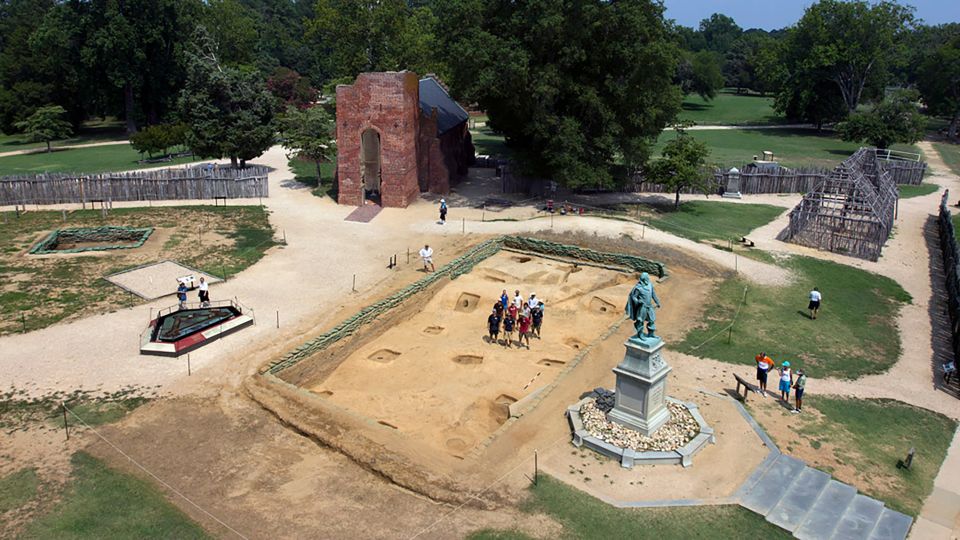An investigation of human remains from the 17th century British settlement in Jamestown, Virginia, has uncovered a scandal in the family of the colony’s first governor, Thomas West. DNA analysis of two skeletons from unmarked graves in a Jamestown church revealed that both individuals were related to West and linked by shared maternal lineage. One of the men, Captain William West, was found to be illegitimate, born to Thomas West’s spinster aunt, Elizabeth, a fact that had been deliberately hidden in the family’s genealogical records. The scandal may have been a driving factor in Captain West’s decision to seek his fortune in the American colony.
Researchers found four unmarked graves in Jamestown in 2014, with two coffins indicating that the individuals buried there were important members of the colony. Captain William West, who was buried with a spangled military sash, and Sir Ferdinando Wenman were among those in the graves. Historic documents indicated that both men were related to the governor, but only Wenman’s exact relation to him was known. Analysis of ancient DNA revealed that both West and Wenman shared a matrilineal haplogroup, suggesting a close maternal relationship between them, a surprising discovery that directed researchers to uncover more historical evidence.
Despite the degraded state of the ancient DNA, researchers were able to determine that Captain West and Wenman were likely closely related on their maternal side. This finding led them to documents mentioning Captain West’s female relatives, eventually leading to a court case from 1616 involving West’s will beneficiary, Mary Blount. The legal records revealed that Captain West was raised by Mary Blount on behalf of her deceased sister, Elizabeth, confirming the illegitimate nature of his birth. This revelation shed light on the familial relationships within the West family, confirming that Captain West, Governor Thomas West, and Ferdinando Wenman were cousins.
Uncovering this family secret adds another dimension to the history of Jamestown, the oldest English settlement in North America. The research demonstrates how genetic data, combined with historical evidence, can reveal narratives that were once hidden or suppressed due to shame or societal norms. By unraveling this centuries-old mystery, scientists have provided a deeper understanding of how individuals navigated societal rules and familial dynamics in the early colonial period. The ability to uncover and interpret these secrets more than 400 years later showcases the incredible advancements in historical and scientific research.
The study highlights the importance of utilizing a multidisciplinary approach to investigate historical mysteries, combining archaeological findings, genetic analysis, and archival research. By piecing together information from different sources, researchers were able to shed light on a long-hidden scandal within the family of Jamestown’s first governor and provide new insights into the personal lives and relationships of early American colonists. This discovery underscores the ongoing importance of exploring and uncovering the hidden histories and secrets of our past, allowing us to better understand the complexities of human experience and society throughout history.


